The Patron Saint of Cooks, who was Slow-Roasted by a Roman Emperor('s prefect)
Saint Lawrence and the legion of Saints for the culinary enthused.
When was the last time things didn’t go quite right in the kitchen, or you threw a big deal piece of meat in the oven with big hopes and gave yourself a slight whisper to yourself saying, “This better work” or “I’ve invited too many people…” or just the plain old and simple “Fuck, fuck, FAACK!”
There is someone you can pray to exactly on those occasions (not presuming religions or anything, I’m just writing over here.) Maybe one of these saints will look over your shoulder or that saint will scoff and shake their head in disapproval of your ghastly kitchen habits and that you should be reprimanded for your culinary ignorance. Either way; a far flung hope, a “please work”, an inkling of what might work which won’t, or a prayer could be just what you need.

If that is the case let me introduce you to Saint Lawrence, or Saint Laurent (for my frenchies). Sounds quite high fashion doesn’t it? Well this saint isn’t going to bless your knock-off Birkin bag. This saint is here to help you with your kitchen endeavours, and also to help the poor. I also think it’s very interesting that Saint Laurent is the saint for both cooks and the poor. Do they go hand in hand? I think so! Some of the most renowned dishes of the world were born in the hands of the poor. The poor have little to work with and if working with proteins, they famously work with the ‘cheap cuts’ and make something exquisite out of them. Speaking of proteins, Saint Lawrence became a martyr by being roasted alive on a gridiron…
Let’s not stop with Saint Lawrence, who has a righteous story I’ll share a bit later. Let’s say cooking isn’t really your thing, maybe it’s baking or making pastries, or coffee, or vegetarianism, or chocolates, or you practice butchery, or you like tea, beer, or you prefer wine, or cheese or honey — there is a patron saint for that. Let’s highlight a few noteworthy ones, because there are so many!
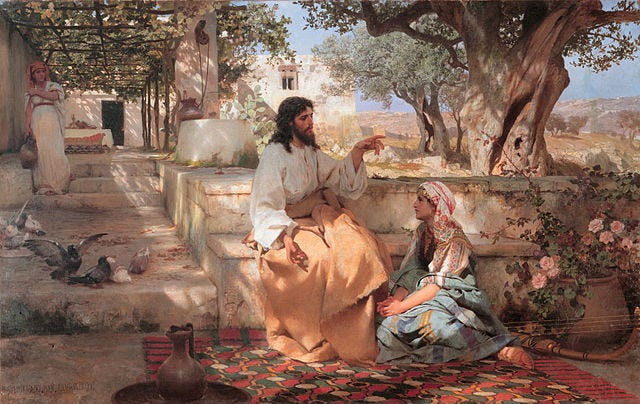
I think we should start with the patron saint of homemakers, domestic workers, cooks, wait staffs, and housewives. Since we are talking about saints there is none other than the saint who served Jesus himself. Saint Martha, sister of Lazarus and Mary (I don’t know who Lazarus is either don’t worry… Actually just found out that it was Saint Martha’s brother who was eventually resurrected by Jesus.) She was the host of Jesus, so if you think you are stressed about thinking what to serve to your guests remind yourself of Saint Martha. Who better to call upon for for help before your dinner guests arrive?
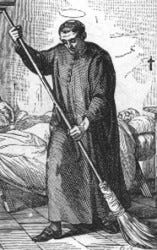
Are you Italian and a chef? Well, this sounds quite like a biased saint but there is one for you too! Saint Francis Caracciolo, patron saint of Italian chefs and Italian food but only since 1996. His story is quite a long one with him trying to set up councils and clerical orders here and there after receiving a letter to someone with a similar name as his and he ended up going on a mission with the guy who sent the letter. I still don’t understand why he is the patron saint of Italian chefs even after reading 5 articles about him.
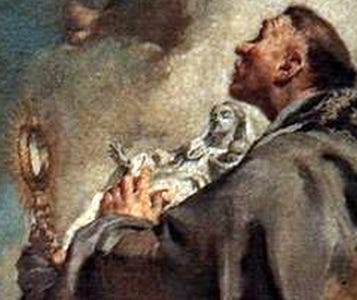

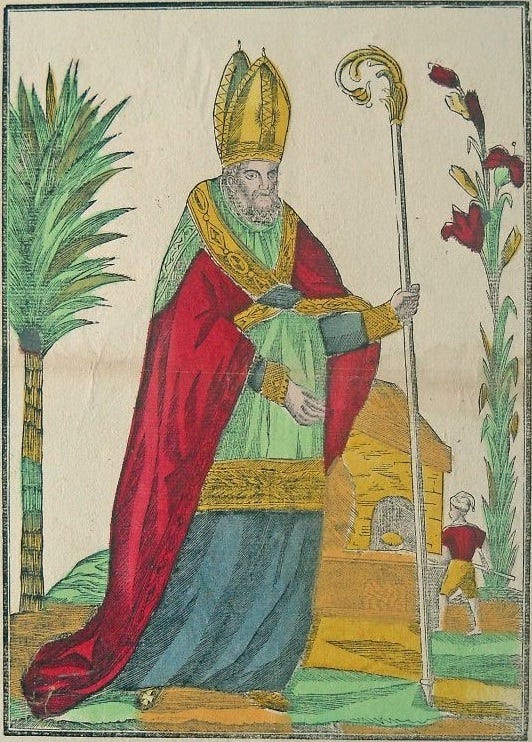
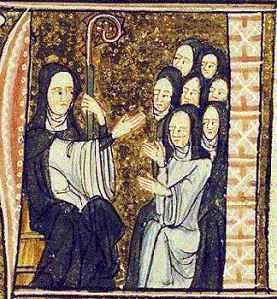
Who else? Saint Hyacinth the patron saint of pierogi’s perhaps? Or Saint Drogo, the saint of coffee, cafés and baristas? Or Dom Justo Takayama Ukon, the patron saint of tea? How about Saint Abigail the saint of bees and honey? Or Saint Honoré the patron saint of bread, bakers, and those who make altar bread. This saint even has a lovely pastry named after him. Or maybe you would prefer Saint Hildegard of Bingen, who became only one of four Doctors of the Church which is a title of accomplishment given to saints by the Catholic Church. She is patron saint of recipe collectors, chefs and nutritionists, as well as musicians and writers.
Let’s go back to Saint Lawrence and his story. He met the future Pope Sixtus II who was a famous teacher and they both came from the same region of Aragon. They both travelled from Spain to Rome. Sixtus became Pope in 257 and ordained Lawrence as deacon at the age of 22. Later on, Lawrence became the archdeacon of Rome. This was a very high position within the Church which came with plenty of responsibilities such as Treasury of the Church and to give alms to the poor.
So far so good, the two friends came from Spain and became prominent within their religion and supposedly remained humble about it. Pretty sweet until one year later, in 258, unlucky for them that the Roman Emperor Valerian issued a decree that all bishops, priest and deacons should be put to death. Pope Sixtus was found at the Cemetery of Saint Callixtus performing liturgy and was executed immediately.
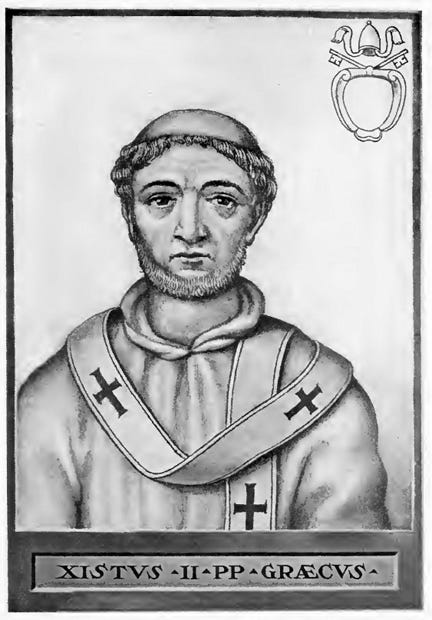
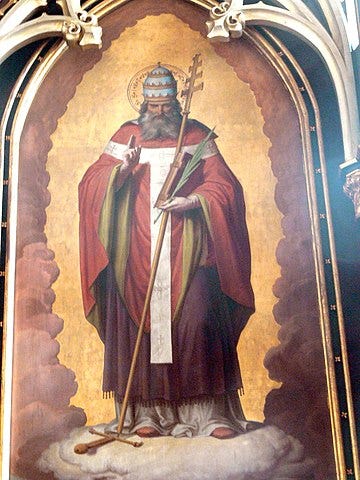
Afterwards, the prefect of Rome demanded Lawrence return all the riches of the Church and that he had three days to do so. During those three days Lawrence gave away as much Church property and riches to the poor in order to prevent the prefect from seizing it. On the third day he presented himself in front of a small council and the prefect, they asked for the riches to be returned.
Lawrence presented the poor, the blind, the deaf, the crippled, and those suffering to the council. He stated to the council that these were the true treasures of the Church. The anger that arose from the prefect became apparent with his cruel idea of having a gridiron made with hot coals to be put under and truss Lawrence on top of it. After long torturous moments the legend goes that Lawrence said something in the likes of:
“I’m well done on this side, turn me over!”
Ha! What a burn to the prefect of Rome! One last comedic quip in the face of death sounds courageous but there is a chance the way he died was false. There was perhaps a mistake in the transcription of a missing “p” in the latin word passus est, which means he suffered. Where the transcription shows assus est, which means he was roasted or baked. Even with a mass amount of paintings depicting his death in great detail this could all be false. Maybe you know someone who has proof of a long lineage to Rome dating back to the year 257 and was present on that day? Let me know!
Anyways, that is how Saint Lawrence became the patron saint for cooks, chefs and comedians.
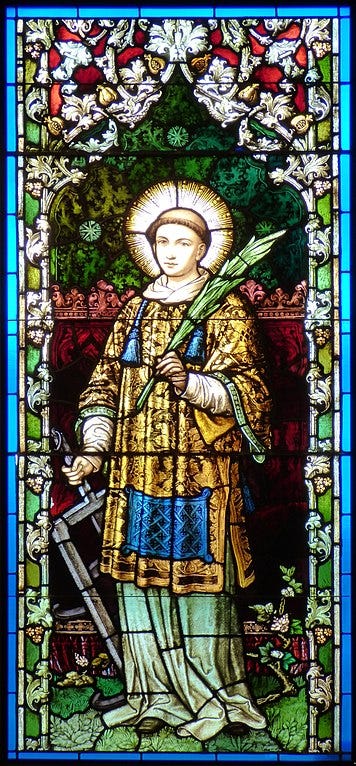
The extensive list of patron saints of the culinary arts and anything in the margin of food or drink shows the interesting and fine line between gluttony or penitence, or how some repent through food. Some have tried to redeem their sins with guilt by prayer or through food . Some saints, believers or zealots didn’t indulge in the luxury of food and found it an unnecessary virtue. Some thought gruel was all you need, and all you should need.
Food is spiritual, powerful and medicinal in the right hands. It makes sense to correlate religion with food, where some treat food damn near to religion. Whether Muslim, Buddhist, Jewish, Hindu or any other beautiful religion their are so many taboos and venerations or abstinences around food. We all have our own ways of living with food and I sometimes think, we take it for granted in this day and age — which is a shame. We sometimes forget the skill, knowledge and love it takes to bring that food to our table. Let’s not forget and be grateful for every bite. This isn’t a prayer or anything, just a long thank you letter to food. Whether you are religious or not, food is holy. Let’s treat it as such.
Saint Honoré-ly yours,
The Greasy Pen.
Thank you for reading.



